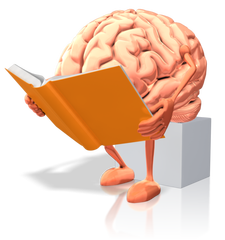Welcome to 2018! And to this here blog if you’re newly come to it.
 I am thinking that maybe 2017 was the year your brain was injured. I can only imagine how that might be for you. Confusion, fear, a sense of confinement, bereavement, anger – the rise and fall of a whole ocean of emotions. I wish you strength, perseverance, and all the support you need. Including from me – where, when and how I can.
I am thinking that maybe 2017 was the year your brain was injured. I can only imagine how that might be for you. Confusion, fear, a sense of confinement, bereavement, anger – the rise and fall of a whole ocean of emotions. I wish you strength, perseverance, and all the support you need. Including from me – where, when and how I can.
Maybe 2017 was a year of achieving little goals. Sometimes, the first goal is finding a goal. Is “goal” the right word? For some “ambition” or “sense of direction” says it better. It depends how you experience yourself. The most meaningful word or phrase? The one that keeps it real.
Why little goals, small successes? Small successes are more probably achieved sooner than big ones. And let’s face it, a big success, when you look at it, is really a collection of small ones.
If I seem to have started straying off track I promise I haven’t. This month’s post is an introduction to Neuro-Linguistic Programming. NLP’s co-inventors are Richard Bandler and John Grinder, who got their heads together in the 1970s to see if they could scientifically study the mechanics and psychology of successful people.
I’ll deal with each of the three parts of the “NLP” name in turn.
(Neuro)
This first part implies the biological science of the nervous system, and therefore the brain, doesn’t it? The truth is that NLP is a set of theories. Modelled on our brain’s evolution and function as science currently understands it, but still a set of theories. It is not a science in the same way as brain surgery. Or neuropsychology.
It was developed from social studies into how successful people behave and communicate.
(Linguistic)
Language – the use of words. I’ve been using a bit of wordplay above. I’ll recap.
Is “goal” the right word? For some “ambition” or “sense of direction” says it better. It depends how you experience yourself. The most meaningful word or phrase? The one that keeps it real.
The word, “goal” goes with something clearly identified. What about times we cannot think what to aim for? Or when we don’t yet want to? Sometimes we only have a rough idea of where to aim, and that’s enough: “Don’t know what I want but I know how to get it,” you might say.
Some of you may be thinking: “Don’t know what I want but I know how to get it”? What utter nonsense! Some of you may be thinking it makes perfect sense. (And I bet some of you are already remembering the Sex Pistols.)
(Programming)
In a nutshell: Brain (together with all the other sensory systems) = Computer. Belief & Behaviour = Routines and Sub-routines. Language = Machine Code. Therapy = Reprogramming.
Yes, Whovians and Trekkies, we are talking cybermen and borg… Symbolically speaking, that is.
And on that point, I shall leave you. In February’s post we’ll explore our cyberman / borg insides through the NLP lens.
Meanwhile, click here to see and hear Bandler’s own definition of NLP.
Take care, everyone.
Sean


